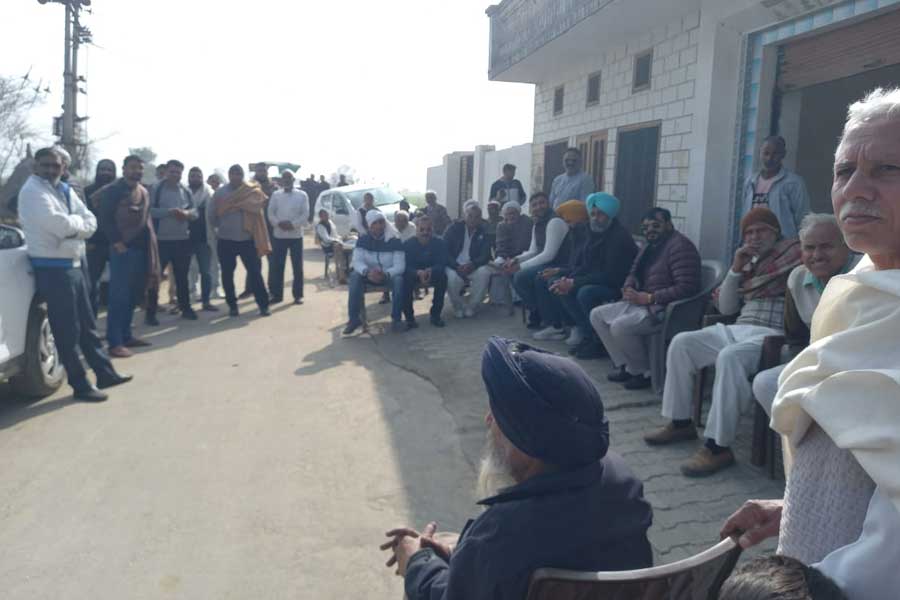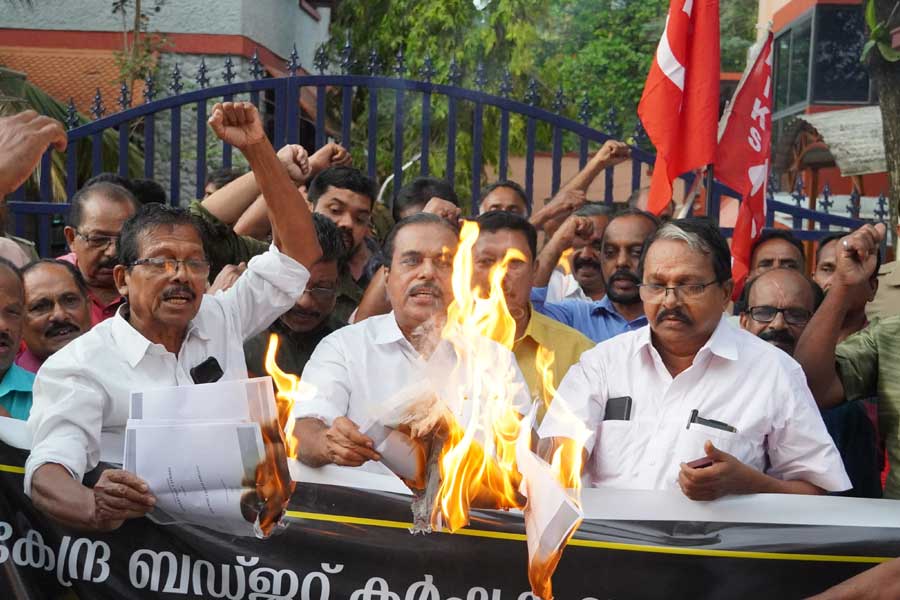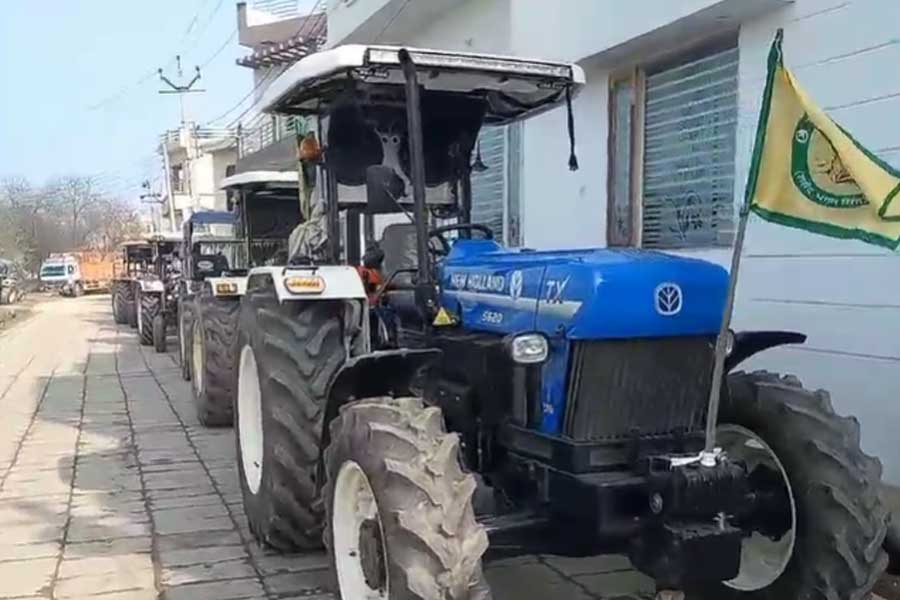Farmers in Punjab and Haryana are ready to roll their tractors once again and march towards Delhi to remind the Narendra Modi government of its promise on enacting a law for minimum support price (MSP) on agri-produces.
On February 13, 78 farmers’ unions have planned a march to Delhi, while three days later on February 16, the Samyukta Kisan Morcha, led by the CPM’s peasants’ wing, the All India Kisan Sabha, has called for a “Grameen Bandh” (rural strike) across India.
The farmer’s protest that was held between November 2020 till December 2021 is the only instance when the Narendra Modi government bowed before protestors in its decade-long tenure. After close to a year of highway blockades the Narendra Modi government rolled back the contentious Farmers’ Produce Trade and Commerce (Promotion and Facilitation) Act, the Farmers (Empowerment and Protection) Agreement of Price Assurance and Farm Services Act and the Essential Commodities (Amendment) Act in November 2021.

Mobilising farmers in a Haryana village.
But the battle, however, was only half won.
The farmer’s unions, of all hues, claim the Centre had reneged on its commitment for giving legal guarantee to MSP as was decided at the end of the 2021 mega protests.
In the interim Union Budget presented last week, Sitharaman said, “Minimum support prices for the produce of ‘Annadata’ are periodically increased appropriately.”
The farmers agree with Sitharaman. But only partially, for the key question remains. “MSP has no legal sanctity yet. This was one of our primary demands (during the 2020-21 farmers’ protest). We have waited for two years and now want the government to answer whether they accept it or not,” said Ramandeep Singh Mann, a farmers’ leader.
While the government announces MSP on 23 farm produces ahead of the rabi and kharif seasons, “dedicated buying” is on two select crops – paddy and wheat -- that too limited to the states of Punjab, Haryana and parts of Western UP.
“In these states, paddy and wheat can be sold only on the MSP. In other states, beyond a pre-decided quota that the government procures, the rest is sold below the MSP. Our demand is if the government announces MSP then it should be implemented too,” said Mann.

Members of All India Kisan Sabha, the CPM's peasant wing, burn the budget copies in Trivandrum on Saturday.
Last May-June, sunflower producers in Haryana had to block the national highway connecting Delhi to Amritsar. “The government had announced MSP at Rs 6,400 but we could ultimately sell it at Rs 5,800 only. That too after we blocked the highway for two days. For the next season the MSP has been fixed at Rs 5,600 per quintal. No farmer is ready to cultivate sunflower this season,” said Gurjeet Singh, a farmer from Ambala. Haryana. “Maize is included in the MSP list every year but the government never procures it, leaving us at the mercy of the traders and arthiyas,” he added.
Between November 2020 and December 2021, areas surrounding Delhi had turned into a battle zone as farmers laid siege and the government erected metal barricades, cement walls, barbed fences and dug iron nails on the ground at the three borders (two with Haryana and one with Uttar Pradesh) – Tikri, Singhu and Ghazipur – to stop the protesters from marching into Delhi.
This time the unions promise a repeat though questions have cropped given the division within the organisations even as their objectives remain unchanged.
Vijoo Krishnan, the general secretary of the All India Kisan Sabha, says the Samyukta Kisan Morcha has been working on the February 16 Grameen Bandh for months.
“Different events have been organised in the run up to the Grameen Bandh. For three days in November, we held dharnas outside all Raj Bhavans. On this Republic Day more than a lakh tractors joined a countrywide rally in 27 states. Workers' unions have now come together with the SKM. The February 13 programme is not called by the SKM," Krishnan said.
On Saturday, the Sanyukta Kisan Morcha burnt copies of the interim budget as a mark of protest.
Those behind the February 13 march have also been busy organising meetings in the villages of Punjab and Haryana to mobilise the peasants.
“On February 12, farmers from Punjab and Haryana will assemble at the Shambhu border in Ambala and the next day march towards Delhi. If we are stopped, we will remain on the ground till the government accepts our demands,” said Amarjeet Singh Morhi, president of the Bharatiya Kisan Union (Shaheed Bhagat Singh). Another group of farmers’ union which has christened itself Samyukta Kisan Morcha (non-political) will also join the February 13 march.
Morhi says they are planning to mobilise 70,000-80,000 farmers for the next round of agitation.
Morhi’s outfit, barely two years old, had split in February 2022 from another Bharatiya Kisan Union faction led by Punjab leader Gurnam Singh Charuni.
Political ambitions of some of the farmers’ leaders ahead of the elections in Punjab and Uttar Pradesh two years ago – both states with a large farming community – had caused division among the ranks with some of them going on to contest the state polls and losing badly.
“There were some leaders in the 2020-21 protests like Shivkumar Sharma, alias Kakkaji, from Madhya Pradesh who were close to the Sangh but allied for the cause of farmers. In Kerala, KV Biju had quit the Swadeshi Jagran Manch, an RSS affiliate,” said a farmers’ union leader. “The AIKS-backed Sanyukta Kisan Morcha did not participate in the storming of the Red Fort on Republic Day of 2021. There were differences then and there are differences now, the cause remains the same.”











